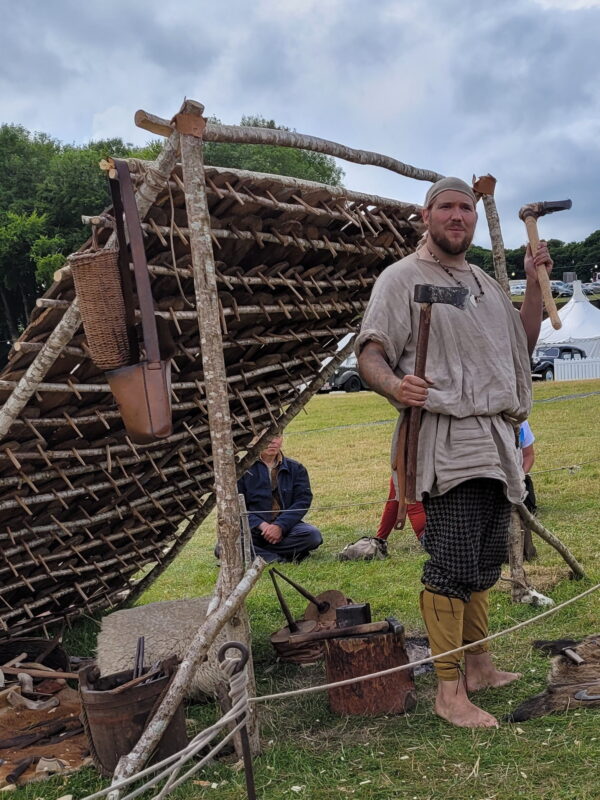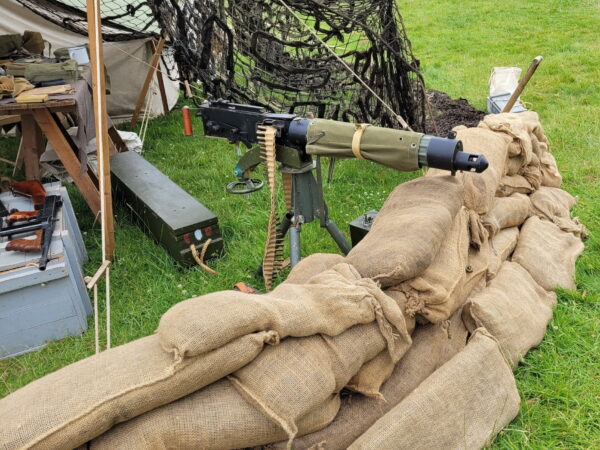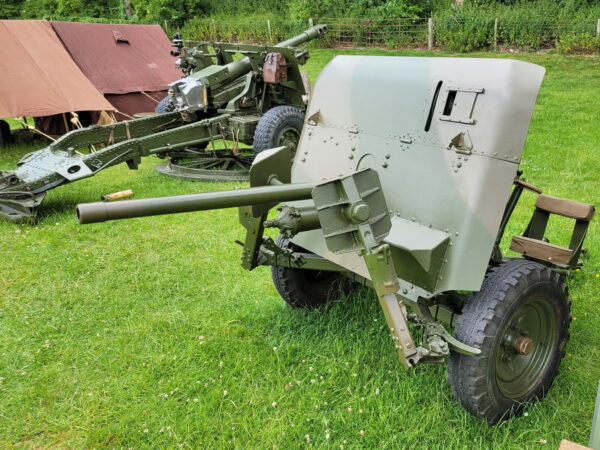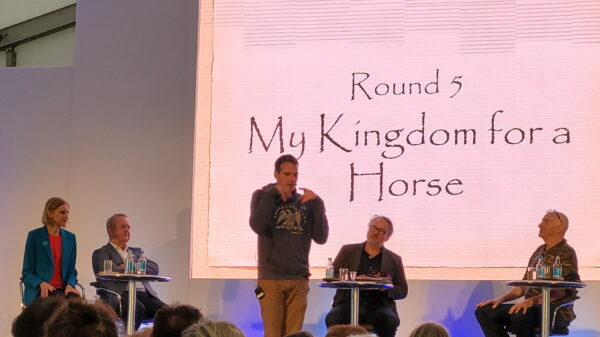The Chalke Valley History Festival is a week long celebration of history, as the name rather suggests, with talks, presentations, and living history. This year we kicked things off with Caroline Shenton’s National Treasures: Saving the Nation’s Art in World War II, a superb talk on the dispersal of the collections of libraries and museums at the start of the war. Pre-war fears of a colossal aerial knock-out blow meant not just children but paintings, books and other artefacts left major cities for the relative safety of rural locations.
With cinematic influences from Went The Day Well to Their Finest, casting suggestions were provided through the talk linking the key players to characters from Ealing comedies, a nice way of bringing them to life, and the escapades often had a touch of Ealing about them – a van containing Domesday Book and other priceless documents arriving early in Somerset and being left unlocked while the armed guards went off for a cup of tea; the most important stones of the Crown Jewels being removed and stashed in a biscuit tin. Thankfully the efforts were largely successful, the majority of art surviving the war, though buildings including the British Library were hit during the Blitz; even more thankfully Britain avoided German occupation and the consequent looting widespread across Europe. I can’t wait to delve deeper in the accompanying book, Chalke Valley inevitably results in a greatly expanded ‘to read’ backlog.
Between the formal talks there are all sorts of vignettes of living history – an Iron Age smith extolling the great skill of pre-Roman metalwork in contrast to popular perception (aided by some less than flattering Roman accounts that seem to be contradicted by archaeological evidence), 18th century smugglers demonstrating how to conceal considerable quantities of contraband about their person, unsung heroes of D-Day, SOE saboteurs; it’s hard not to get caught up when walking past, and unfortunately impossible to fit everything in.
From the Iron Age firmly into living memory, our next event was Chris Patten: The Hong Kong Diaries. Current politics was mostly avoided, though the fact that Oliver Dowden had resigned as Conservative Party Chairman that very morning could hardly be overlooked considering Patten’s journey to Hong Kong began in 1992 when, as Chairman himself, he played a key role in John Major’s electoral victory but lost his own seat in Bath. Missing out as Chancellor of the Exchequer, of the possible roles available Governor of Hong Kong in the lead-up to its return to China in 1997 sounded the most interesting, albeit challenging (never mind the Mandate of Heaven, as he says in the book, he didn’t even have the mandate of Bath). He kept a diary, longhand and on tape, and the covid lockdown of 2019 afforded him the opportunity to revisit the transcripts to produce the resulting book.
A fascinating glimpse into the challenges of preserving the systems and character of Hong Kong for the future (“one country, two systems”) under pressure from both the Chinese leadership and those in Britain more concerned about the relationship with China than the people of Hong Kong; I well remember watching the handover on the news, particularly Patten and Prince Charles on the royal yacht leaving the harbour, but hadn’t really been keeping up with the complexities of the situation. As history merged with current affairs Patten’s anger at the regressive policies of the 2010s was clear, especially the hypocrisy of those implementing measures while holding foreign passports themselves.
The good old British summer then put a quite literal dampener on things with a heavy shower, but we were back under cover fairly rapidly for our final event, lightening the tone slightly with the endearingly chaotic Histrionics panel show. Chaired once again by Charlie Higson this year saw Tracy Borman and Ian Hislop take on Dan Snow and Simon Day over rounds including Name That Tomb! and the historical charades of My Kingdom for a Horse, a great way to finish the day.




No comments:
Post a Comment